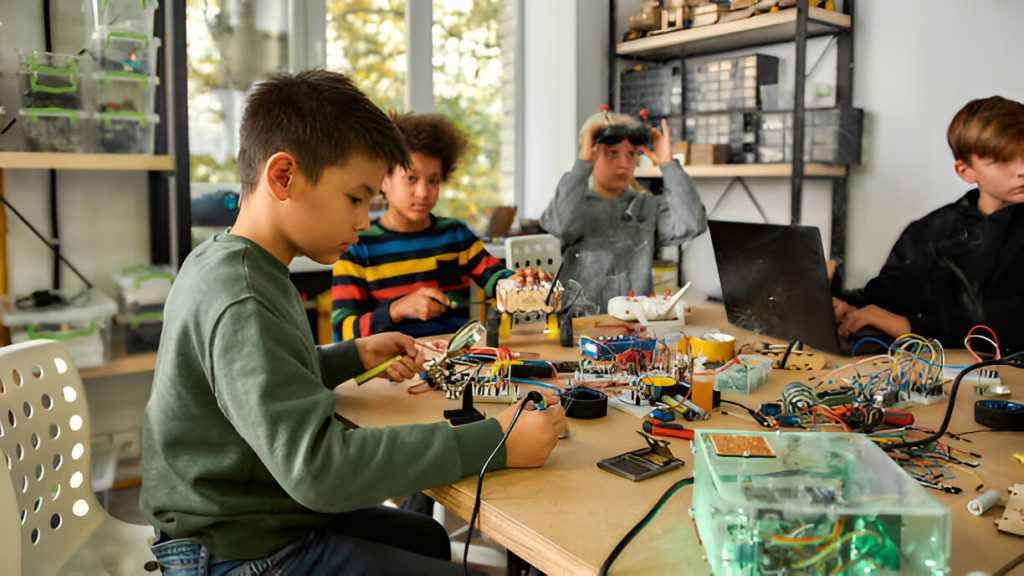Your Complete Guide to Starting a Successful Plumbing Career in South Florida
Thinking about becoming a plumber in Miami? Great choice. Plumbers are in high demand, and the work is both steady and rewarding. Whether you’re fresh out of high school or looking to change careers, plumbing can offer you job security, hands-on work, and a path to earn a good living.
But here’s the thing—you can’t just pick up a wrench and start working. You need proper training. And that starts with choosing the right plumbing school.
So let’s get into it.
In this guide, we’ll break down how to choose the right plumbing school in Miami. We’ll cover everything from what to look for in a program to how to compare schools. This is the only guide you’ll need to find the school that fits your goals.
Why Picking the Right School Really Matters
Not all plumbing schools are created equal. Some will fully prepare you for the real world, while others may leave you lacking the skills, licenses, or confidence you need to get hired.
Here’s why it’s important to get this choice right:
- 💼 You need the right certifications to legally work as a plumber in Florida
- 🛠️ Hands-on experience is key to becoming job-ready
- 🚀 Some schools offer job placement, apprenticeships, and networking that can kickstart your career
Starting with the wrong school can mean wasted time, extra money, and delayed success.
So, how do you avoid that? Let’s dig in.
Step 1: Check for Accreditation and State Approval
Before you do anything else, make sure the plumbing school is accredited and recognized by the Florida Department of Education or another legitimate trade organization.
Why it matters:
- It ensures the program meets educational and industry standards
- It’s often required for financial aid eligibility
- It helps you qualify for state plumbing licenses
📌 Pro Tip: Ask this question: “Is this program recognized by the state and does it meet licensing requirements for Florida plumbers?”
If they can’t say “yes,” walk away.
Step 2: Review the Course Content and Curriculum
A strong plumbing school in Miami should offer a comprehensive curriculum that covers both theory and real-life plumbing practice.
A solid plumbing program includes:
| Course Subject | What You’ll Learn |
| Plumbing Principles | Understanding water systems, gravity, pressure |
| Blueprint Reading | How to read construction and plumbing plans |
| Local Plumbing Codes | Miami-Dade building and safety regulations |
| Pipe Fitting Techniques | Installation of copper, PVC, and PEX pipes |
| Tools and Equipment | Hands-on practice with real tools |
| Fixture Installation | Toilets, sinks, bathtubs, and more |
| Troubleshooting & Repairs | How to detect and fix common problems |
🎯 Goal: By the end, you should be able to walk onto a job site and contribute on day one.
Step 3: Make Sure There’s Real Hands-On Training
This might be the most important part of your training.
Reading about plumbing in a book is one thing. But actually cutting, connecting, and repairing pipes? That’s what makes you a plumber.
Look for:
- Real working labs
- Equipment you’ll find on job sites
- Hours of supervised practice
- Mock installation projects
📌 Ask: “How many hours will I spend working with actual tools and fixtures?”
If it’s mostly classroom learning, keep looking. Plumbing is a skill you learn by doing.
Step 4: Learn From Experienced Instructors
Great plumbing schools are led by experienced tradespeople, not just teachers. You want instructors who’ve worked as licensed plumbers, not just taught theory.
What good instructors offer:
- Real-world job stories
- Practical advice you won’t find in textbooks
- Industry contacts for jobs or apprenticeships
- Help preparing for your license test
✅ Tip: Check the school website or brochure. If instructors have 10–20 years of field experience, you’re in good hands.
Step 5: Ask About Job Placement and Apprenticeships
Many students worry about what comes after graduation. The best plumbing schools in Miami will help connect you to job opportunities.
Good schools offer:
- Resume and interview workshops
- Employer meetups and job fairs
- On-the-job training or apprenticeships
- Support for state certification applications
💼 Some programs even guarantee placement assistance, giving you confidence that you’ll find work after graduation.
Step 6: Compare Top Plumbing Schools in Miami
Let’s take a closer look at some highly-rated plumbing schools in the Miami area:
| School Name | Duration | Hands-On Training | Job Help | Accredited |
| Miami Dade College | 1 year | Yes | Yes | Yes |
| Sheridan Technical College | 10 months | Yes | Yes | Yes |
| South Florida Institute of Technology | 12–18 months | Yes | Yes | Yes |
| Robert Morgan Technical College | 12 months | Yes | Yes | Yes |
| William H. Turner Technical Arts Center | 18 months | Yes | Yes | Yes |
📍 Visit these schools in person if possible. Walk around, talk to students, and sit in on a class if they allow it. The vibe and environment matter more than people think.
Step 7: Consider Flexibility, Schedule & Location
Life doesn’t stop just because you’re going back to school. That’s why flexibility matters.
Ask about:
- 🕒 Evening and weekend classes
- 💻 Hybrid programs (online + in-person)
- 🚌 Campus location and parking options
⏰ If you have a job or family to support, make sure the school works with your schedule, not against it.
Step 8: Look at Cost, Financial Aid, and What’s Included
Plumbing school is an investment—but not all programs cost the same.
Ask these questions:
- What is the total cost (including materials)?
- Do you offer payment plans or financial aid?
- Are tools and books included?
- Are there scholarships available?
💡 Don’t choose based on price alone. A slightly more expensive school may offer more value with better training, more tools, or stronger job support.
Step 9: Talk to Former Students or Read Reviews
What do graduates say about the school? Did they feel prepared? Are they working in the field?
Ways to find real feedback:
- Read Google or Yelp reviews
- Look for testimonials on the school’s site
- Search for the school on Reddit or local forums
- Ask to speak with recent graduates
🗣 Word of mouth matters. Take it seriously.
Step 10: Take Action — Apply and Start Training
Once you’ve found the right fit, it’s time to apply. Most plumbing schools in Miami make it easy:
What You’ll Need:
- Fill out an online or paper application
- Provide your ID and high school diploma or GED
- Apply for any available financial aid
- Register for classes and attend orientation
- Start your training toward a reliable, hands-on career!
FAQs About Plumbing Schools in Miami
How long does it take to become a plumber in Miami?
Most training programs last 10 to 18 months. After that, you can start working as an apprentice and work toward full licensure.
Do you need a license to be a plumber in Florida?
Yes, you need to pass a licensing exam to become a certified plumber in Florida. A good plumbing school prepares you for this.
Can I work while attending plumbing school?
Yes! Many plumbing schools in Miami offer night and weekend options for working students.
What’s the salary of a plumber in Miami?
Entry-level plumbers earn around $40,000–$50,000/year, and experienced plumbers can earn $70,000+, especially with specialty skills.



